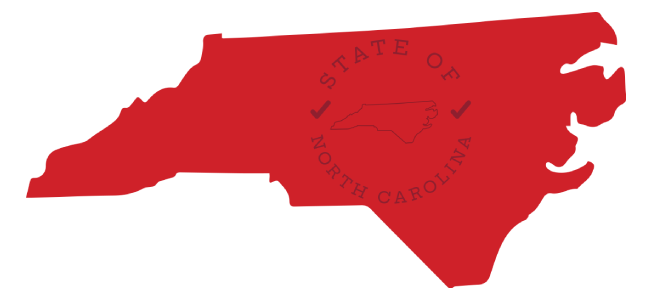
North Carolina
RightCount North Carolina
RightCount is an educational organization dedicated to promoting trust in the security and integrity of elections to strengthen voter confidence. We stand with election board members as they face tough decisions, often requiring them to act independently of political pressures to uphold their oath and the rule of law. Our commitment extends to the peaceful certification of election results, reflecting the will of the voters, and ensuring a smooth, orderly transfer of power without chaos or violence.

FAQs
Can non-citizens vote in North Carolina?
No. It’s illegal to vote in North Carolina in any election if you are not a U.S. citizen. This is also true for federal elections in all 50 states. In North Carolina, many laws and processes work together to ensure that only qualified U.S. citizens cast ballots in elections.
Does North Carolina have a strict Voter ID requirement?
Yes, every voter will be asked to show a photo ID when voting in North Carolina. If the voter does not show an acceptable ID, the voter may complete an ID Exception Form and then vote with a provisional ballot, or vote with a provisional ballot and then return to their county board of elections office with their photo ID by the day before county canvass. Voters who vote by mail must include a photocopy of an acceptable ID when returning their ballot, or they may complete an ID Exception Form.
Where can I check my voter record and if my ballot has been accepted on the SBOE website?
The State Board of Elections provides this information on their website.
If I suspect or witness an election law violation, how do I report it?
Members of the public may submit allegations of election law violations or election fraud using the Election Law Complaint Form (PDF).
Are North Carolina’s voting machines secure?
By state law, voting machines must not be connected to the internet, limiting the possibility of cyber interference. No voting machine in North Carolina contains a modem or modem chip. North Carolina election officials have no evidence that any election system or voting system in the state has ever been the target of a successful cyberattack. State and County Board employees train to assist in securing North Carolina elections, including courses on the risks and warning signs of phishing, malware and other hazards.
How does North Carolina make sure that election results are correct?
fter every election and before results are certified, the State and County Boards of Elections conduct multiple checks designed to detect irregularities, such as equipment tampering, ballot stuffing, and voting machine or tabulation errors. In the sample hand-count audit, for example, two voting sites are selected at random in every county, counted by hand by bipartisan teams, and compared with the machine-counted results. This audit helps confirm the accuracy of voting equipment. Historical audit checks can be viewed by clicking here.
Has North Carolina taken steps to avoid any instances of duplicate voter registration that may allow someone to vote more than once?
North Carolina is an active participant in a multi-state database to combat voter fraud and check duplicate voter registrations. From the start of 2023 through August 2024, county boards of elections in North Carolina removed more than 747,000 ineligible registration records from the state’s voter rolls.
How do I track my absentee or mail-in ballot?
Once you have requested your absentee ballot, you can track its status from printed to accepted by signing up online for status notifications through BallotTrax.
Does North Carolina send mail ballot applications to voters who have not requested them?
No. Election officials send ballots only to registered voters who request them using official paper request forms or the secure North Carolina Absentee Ballot Portal. It is illegal for an election official to knowingly send an absentee ballot to someone who hasn’t requested one.
Who investigates suspected election and voter fraud in North Carolina?
The North Carolina State Election Board investigates potential election law violations and refers cases to prosecutors when warranted based on the findings. The Investigations Division includes experienced investigators who specialize in election matters.
How do I become a poll worker?
Elections officials in North Carolina counties are actively recruiting election workers for upcoming elections. For more information, visit the North Carolina State Board Democracy Heroes website.
Who do I call if I have a question about voting in North Carolina?
Elections are administered by the 100 County Boards of elections in North Carolina. For information about how to contact your county’s election and voter registration officials, visit https://vt.ncsbe.gov/BOEInfo/.
North Carolina in the News








Get Involved
We’re here! Share your information for the latest news from RightCount, or sign up to protect the counting and certification of elections in your community
